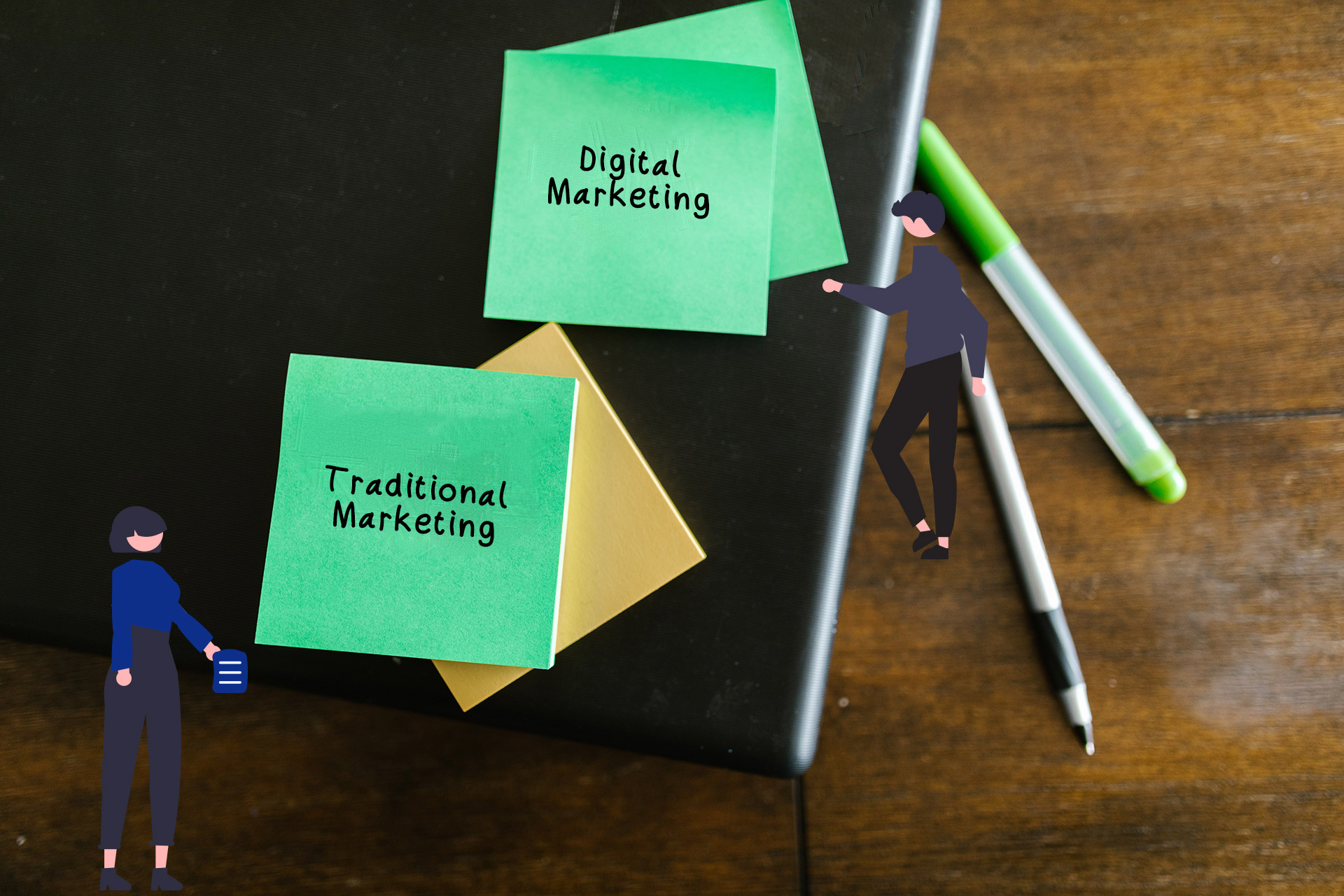Digital Marketing and Traditional Marketing
Digital marketing and traditional marketing are two of the most popular strategies used by businesses to reach their goals. But which one is more effective?
This blog post will compare digital marketing and traditional marketing. We will discuss their similarities, differences, and the benefits of digital marketing over traditional marketing. By the end of the post, you will understand why digital marketing is becoming an increasingly popular option and how digital marketing is changing business.

What is Digital Marketing?
Digital marketing is the use of electronic devices and the internet to promote a product, service, or brand. It is a form of marketing that uses digital tools such as websites, search engines, social media, email, and mobile applications to reach potential customers.
Digital marketing often involves the use of paid advertising, search engine optimization (SEO), content marketing, social media marketing, and other tactics that are designed to increase brand awareness and engagement.
What is Traditional Marketing?
Traditional marketing is the use of traditional media such as television, radio, print, and billboards to promote a product, service, or brand. Traditional marketing also includes direct mail campaigns, trade shows, and other offline marketing tactics.
Similarities Between Digital Marketing and Traditional Marketing
Although digital marketing and traditional marketing are two different strategies, they do have some similarities.
Both digital marketing and traditional marketing are used to promote a product, service, or brand. They are both used to create awareness and engagement with potential customers. Additionally, both strategies involve research and analysis to determine the best methods for reaching their target audiences.
Differences Between Digital Marketing and Traditional Marketing
The biggest difference between digital marketing and traditional marketing is the mediums used. Digital marketing uses digital channels such as websites, search engines, social media, email, and mobile applications. Traditional marketing uses traditional media such as television, radio, print, and billboards.
Another major difference is the cost. Digital marketing is generally much more cost-effective than traditional marketing. Digital marketing can be done with a limited budget and still reach a large audience. Traditional marketing, on the other hand, can be expensive and may not be as effective in reaching a large audience.
Benefits of Digital Marketing Over Traditional Marketing
Digital marketing offers several advantages over traditional marketing that make it a better choice for businesses.
1. Budget-friendly
First, digital marketing is much more cost-effective than traditional marketing. Digital marketing can be done with a limited budget and still reach a large audience. Traditional marketing, on the other hand, can be expensive and may not be as effective in reaching a large audience.
2. Targeted Audience
Second, digital marketing is more targeted than traditional marketing. Digital marketing allows businesses to target specific audiences based on demographics, interests, and behaviors. This allows businesses to better customize their messaging and reach the right audience at the right time.
3. Measurability
Third, digital marketing is more measurable than traditional marketing. With digital marketing, businesses can track a variety of metrics such as website traffic, engagement, conversions, and more. This allows businesses to better understand their audience and refine their strategies.
Conclusion
Digital marketing and traditional marketing are two popular strategies used by businesses to reach their goals. While they have some similarities, they differ in the mediums used and the cost. Digital marketing offers several advantages that traditional marketing does not offer.
